- Home
- Douglas Clegg
Halloween Candy
Halloween Candy Read online
1
Halloween Candy: Three Tales of Horror by Douglas Clegg is published in ebook form by Alkemara Press.
All stories and text in this ebook are copyright 1989-2009 Douglas Clegg. All rights reserved. Illustrations from Isis by Glenn Chadbourne, used here with permission. Cover titling utilizes the Zombified font created by Chad Savage at SinisterVisions.com. Fly design by DeenaWarnerDesign.com
The author grants the reader permission to distribute, re-post and pass around this ebook so long as nothing is altered or changed, and no text or illustration is removed from it.
2
Dear Reader,
Here are three stories of the macabre I've written, to be read on an October night, preferably after dark.
I've also included information about Isis, my new book that's out in bookstores as of fall 2009. Here is an excerpt, some links, and other information about Isis --a book I do not want you to miss. Thank you,
Douglas Clegg
Visit my website at DouglasClegg.com
Find out more about Isis
3
Table of Contents
About Isis
About the Author & Illustrator
Excerpt from Isis, A Tale of the Supernatural
Illustration from Isis
The Three Tales:
Where Flies Are Born
The Machinery of Night
265 and Heaven
More
Other Books
Play the Isis Game
Watch the Isis video
Read Isis
4
A Supernatural Excerpt from the Book
5
BE CAREFUL
WHAT YOU
WISH FOR...
New York Times
bestselling author
Douglas Clegg
brings us Isis, a beautifully
illustrated,
unforgettable
novella that is sure
to become a classic
tale of the
supernatural.
If you lost
someone you
loved,
what would you
pay
to bring them back
from the dead?
About the Book
6
New York Times bestselling author Douglas Clegg brings usIsis, a beautifully illustrated, unforgettable novella that is sure to become a classic tale of the supernatural.
If you lost someone you loved, what would you pay to bring them back from the dead?
Old Marsh, the gardener at Belerion Hall, warned the Villiers girl about the old ruins along the seacliffs. “Never go in, miss. Never say a prayer at its door. If you are angry, do not seek revenge by the Laughing Maiden stone, or at the threshold of the Tombs. There be those who listen for oaths and vows…. What may be said in innocence and ire becomes flesh and blood in such places.”
She was born Iris Catherine Villiers. She became Isis.
From childhood until her sixteenth year, Iris Villiers wandered the stonehedged gardens and the steep cliffs along the coast of Cornwall near her ancestral home. Surrounded by the stern judgments of her grandfather—
the Gray Minister—and the taunts of her cruel governess, Iris finds solace in her beloved older brother who has always protected her. But when a tragic accident occurs from the ledge of an open window, Iris discovers that she possesses the ability to speak to the dead...
Be careful what you wish for.
7
About the Author
Douglas Clegg is the New York Times bestselling author of The Priest of Blood, Afterlife, and The Hour Before Dark, among other novels. His short story collection, The Machinery of Night, won a Shocker Award, and his first collection, The Nightmare Chronicles, won both the Bram Stoker Award and the International Horror Guild Award.
Visit Douglas Clegg at www.DouglasClegg.com
Twitter | Facebook | MySpace
About the Artist
Glenn Chadbourne is an award-winning editorial cartoonist for The Lincoln County News (Maine) as well as a muralist and painter. In addition to Isis, he's illustrated Stephen King's Secretary of Dreams and Colorado Kid, as well as created the logo character "Doug E Graves" for King's rock 'n roll radio station, WKIT. Chadbourne's creation was featured in the movie The Mist. He lives on the coast of Maine. You can find out more at his website at www.GlennChadbourne.com
8
Excerpt from Isis by Douglas Clegg
--1 --“Beware a field hedged with stones,” our gardener, Old Marsh, told me in his smoky voice with its Cornish inflections, as he pointed to the land near the cliff. “See here? The hedge holds in. Will not let out. Things lurk about places like that. Unseen things.”
A house, I suppose, is a stone-hedged field.
A tomb, as well.
The place where the stone-hedges ended, as they grew round our house and the gardens, was an old cave entrance that had been turned into a mausoleum beneath the ground, carved out for centuries for the bones of my ancestors.
--2 --
The locals called it the Tombs, although it was much more than merely a series of subterranean burial chambers. It had been carved from rock by 9
the local miners for some early Villiers ancestor and had been used just two years before my birth, when my grandmother had died. Her coffin was sealed up in granite and plaster within the Tombs, and there were spaces for other Villiers to come. My mother made me swear that I would never allow her to be buried there. “I don’t like that place,” she told me. “It’s cold and horrible and primitive. Put me in a churchyard with a proper marker. Do you promise me?” Certain that her death was years away, I promised her whatever she asked. I coaxed a smile from her when I demanded that upon my own death, she have the ragman cart me away to the rubbish pile.
What lay below the Tombs had once been a sacred site to the Cornish people, more than a thousand years earlier. It had been a cave, leading down the cliff-side through a series of narrow passages out to sea. It was believed to be an entrance to the Otherworld—the Isle of Apples, it was sometimes called—where a stag-god and a crescent-moon mother goddess ruled.
There had been a legend, once, of a Maiden of Sorrow, who had traveled deep in the earth to the Isle of Apples to find her lover who had died a terrible death in a distant battle. When she had returned, she brought him with her and held his hand as they emerged from the winding caves into the sunlight. But when others saw the couple, they cried out in terror—
for her lover’s eyes were black as pitch, and he had no mouth upon his face, just a seal of flesh as if he had not formed completely upon his journey back to the land of the living. The villagers knew he was not meant to be among them, yet the Maiden would not allow him to return to the earth. The legend went that the Maiden lived with him there at the edge of the sea, but he could not speak, nor did his eyes return to life, nor could anyone look him in the eye, lest they be driven mad from seeing the Otherworld reflected in his glance.
When someone in the nearby village was near death, the Maiden’s lover would appear at their doorway and seek entrance, as if trying to find his way back to his soul, which had remained on the other side. 10
There was also a large round granite stone in the field at the edge of the sunken garden, not ten paces from the Tombs. Called the Laughing Maiden, it was believed that once in early times of the Christians, another maiden went out and laughed at the priest on Sabbath day and was turned to stone there.
I went to this stone as a girl with our gardener, who believed all the old tales. Old Marsh was thought of as the local color—the crackpot oldwives-tale man of the earth who believed all the old stories and would walk backward around a graveyard to avoid up
setting the dead. He had been known to plant sheep-nettle at the stables when one of the horses had gotten sick, “to keep out bewitchments,” he’d say quite proudly. He knew a story for every stone, every fountain, every plant, and every tree at Belerion Hall. Old Marsh took it all seriously, and he warned me against upsetting spirits by changing the old gardens too much. “They like their flowers as they like them,” he said when I had been uprooting the weed-like milk thistle. “Bad luck to do that, for the saying goes, ‘Set free the thistle and hear the devil whistle.’”
At the Tombs, he gave me the most serious advice. “Never go in, miss. Never say a prayer at its door. If you are angry, do not seek revenge by the Laughing Maiden stone, or at the threshold of the Tombs. There be those who listen for oaths and vows, and them that takes it quite to heart. What may be said in innocence and ire becomes flesh and blood should it be uttered in such places.”
I looked upon the rock chamber with its small double doorways and its chains and lock, a ruins more than a mausoleum, sunken into the grassy earth with a view of the wide gray sea beyond it, and remembered such stories.
I did not intend ever to cross its threshold.
11
12
Take Action Now --Isis Awaits
Get the Book -Read the ultimate Halloween tale of the year, with unforgettable illustrations by Glenn Chadbourne.
Watch the Book Trailer -but don't give away the secret within it.
Play the Isis Game -more than 1.4 million people have played it.
Get the Isis Widget -Blog it, Myspace it, Facebook it, enjoy it.
Download the Isis Desktop Wallpaper -pick your own COOL
illustration from the book to sit on your computer desktop - FREE.
Get your Isis Avatar -Watch Isis fall, see Isis walk, learn about the undead soldiers…and choose your avatar.
13
"Where Flies Are Born"
Douglas Clegg
The train stopped suddenly, and Ellen sat there and watched her son fill in the coloring book with the three crayolas left to him: aquamarine, burnt sienna, and silver. She was doing this for him: she could put up with Frank and his tirades and possessiveness, but not when he tried to hurt Joey. No. She would make sure that Joey had a better life. Ellen turned to the crossword puzzle in the back of the magazine section to pass the time. She tried not to think of what they’d left behind. She was a patient woman, and so it didn’t annoy her that it was another hour before anyone told the passengers that it would be a three hour stop, or more. Or more, translating into six hours. Then her patience wore thin and Joey was whining. The problem with the train, it soon became apparent, was one which would require disembarking. The 14
town, if it could be called that, was a quarter mile ahead, and so they would be put up somewhere for the night. So this was to be their Great Escape. February third in a mountain town at thirty below. Frank would find them for sure; only a day’s journey from Springfield. Frank would hunt them down, as he’d done last time, and bring them back to his little castle and she would make it okay for another five years before she went crazy again and had to run. No. She would make sure he wouldn’t hurt Joey. She would kill him first. She would, with her bare hands, stop him from ever touching their son again.
Joey said, “Can’t we just stay on the train? It’s cold out there.”
“You’ll live,” she said, bringing out the overnight case and following in a line with the other passengers out of the car. They trudged along the snowy tracks to the short strip of junction, where each was directed to a different motel or private house.
“I wanted a motel,” she told the conductor. She and Joey were to be overnight guests of the Neesons’, a farm family. “This isn’t what I paid for,” she said, “it’s not what I expected at all.”
15
“You can sleep in the station, you like,” the man said, but she passed on that after looking around the filthy room with its greasy benches. “Anyway, the Neesons run a bed-and-breakfast, so you’ll do fine there.”
The Neesons arrived shortly in a four-wheel drive, looking just past the curve of middle age, tooth-rotted, with country indelibly sprayed across their grins and friendly winks. Mama Neeson, in her late fifties, spoke of the snow, of their warm house “where we’ll all be safe as kittens in a minute,” of the soup she’d been making. Papa Neeson was older ( old enough to be my father, Ellen thought) and balder, eyes of a rodent, face of a baby-left-too-long-in-bathwater. Mama Neeson cooed over Joey, who was already asleep. Damn you, Joey, for abandoning me to Neeson-talk. Papa Neeson spoke of the snowfall and the roads. Ellen said very little, other than to thank them for putting her up.
“Our pleasure,” Mama Neeson said, “the little ones will love the company.”
16
“You have children?” Ellen winced at her inflection. She didn’t mean it to sound as if Mama Neeson was too old to have what could be called “little ones.”
“Adopted, you could say,” Papa Neeson grumbled, “Mama, she loves kids, can’t get enough of them, you get the instinct, you see, the sniffs for babies and you got to have them whether your body gives ‘em up or not.”
Ellen, embarrassed for his wife, shifted uncomfortably in the seat. What a rude man. This was what Frank would be like, under the skin, talking about women and their “sniffs,” their “hankerings,” Poor Mama Neeson, a houseful of babies and this man.
“I have three little ones,” she said, “all under nine. How old’s yours?”
“Six.”
“He’s an angel. Papa, ain’t he just a little angel sent down from heaven?”
Papa Neeson glanced over to Joey, curled up in a ball against Ellen’s side, “don’t say much, do he?”
17
The landscape was white and black; Ellen watched for ice patches in the road, but they went over it all smoothly. Woods rose up suddenly, parting for an empty flat stretch of land. They drove down a fenced road, snow piled all the way to the top of the fenceposts. Then, as with a barn behind. We better not be sleeping in the barn.
Mama Neeson sighed, “hope they’re in bed. Put them to bed hours ago, but you know how they romp…”
“They love to romp,” Papa Neeson said.
The bed was large and she and Joey sank into it as soon as they had the door closed behind them. Ellen was too tired to think, and Joey was still dreaming. Sleep came quickly, and was black and white, full or snowdrifts. She awoke, thirsty, before dawn. She was half-asleep, but lifted her head towards the window: the sound of animals crunching in the snow outside. She looked out—had to open the window because of the frost on the pane. A hazy purple light brushed across the whiteness of the hills—the sun was somewhere rising beyond the treetops. A large brown bear sniffed along the porch rail. Bears should’ve frightened her, 18
but this one seemed friendly and stupid, as it lumbered along in the tugging snow, nostrils wiggling. Sniffing the air; Mama Neeson would be up—four thirty—frying bacon, flipping hotcakes on the griddle, buttering toast. Country mama. The little ones would rise from their quilts and trundle beds, ready to go out and milk cows or some such farm thing, and Papa Neeson would get out his shotgun to scare off the bear that came sniffing. She remembered Papa’s phrase: “the sniffs for babies,” and it gave her a discomforting thought about the bear.
She lay back on the bed, stroking Joey’s fine hair, with this thought in her mind of the bear sniffing for the babies, when she saw a housefly circle above her head; then, another, coming from some corner of the room, joining its mate. Three more arrived. Finally, she was restless to swat them. She got out of bed and went to her overnight bag for hairspray. This was her favorite method of disposing of houseflies. She shook the can, and then sprayed in the direction of the (count them: nine) fat black houseflies. They buzzed in curves of infinity. In a minute, they began dropping, one by one, to the rug. Ellen enjoyed taking her boots and slapping each fly into the next life. 19
Her dry throat and heavy
bladder sent her out to the hallway. Feeling along the wall for the light switch or the door to the bathroom—
whichever came first. When she found the switch, she flicked it up, and a single unadorned bulb hummed into dull light.
A little girl stood at the end of the hall, too old for the diaper she wore; her stringy hair falling wildly almost to her feet; her skin bruised in several places—particularly around her mouth, which was swollen on the upper lip. In her small pudgy fingers was a length of thread. Ellen was so shocked by this sight that she could not say a word—the girl was only seven or so, and what her appearance indicated about the Neesons…
Papa Neeson was like Frank. Likes to beat people. Likes to beat children. Joey and his black eyes, this girl and her bruised face. I could kill them both.
The little girl’s eyes crinkled up as if she were about to cry, wrinkled her forehead and nose, parted her swollen lips. 20
From the black and white canyon of her mouth a fat green fly crawled the length of her lower lip, and then flew toward the light bulb above Ellen’s head.

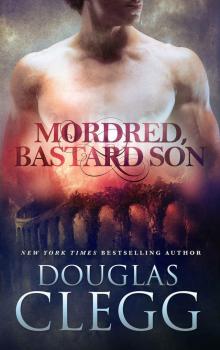 Mordred, Bastard Son
Mordred, Bastard Son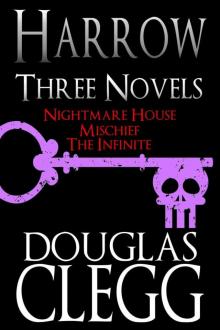 Harrow: Three Novels (Nightmare House, Mischief, The Infinite)
Harrow: Three Novels (Nightmare House, Mischief, The Infinite)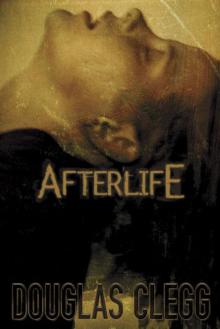 Afterlife
Afterlife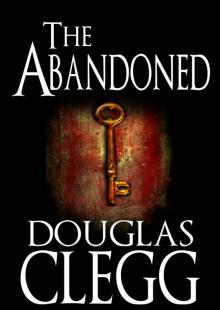 The Abandoned - A Horror Novel (Thriller, Supernatural), #4 of Harrow (The Harrow Haunting Series)
The Abandoned - A Horror Novel (Thriller, Supernatural), #4 of Harrow (The Harrow Haunting Series)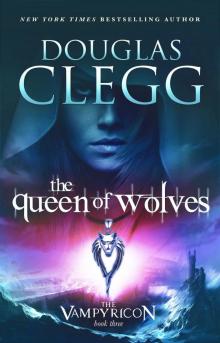 The Queen of Wolves
The Queen of Wolves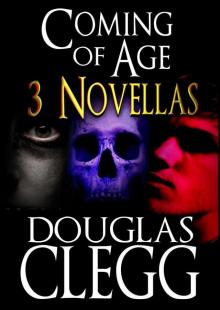 Coming of Age: Three Novellas (Dark Suspense, Gothic Thriller, Supernatural Horror)
Coming of Age: Three Novellas (Dark Suspense, Gothic Thriller, Supernatural Horror)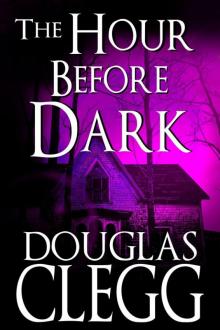 The Hour Before Dark
The Hour Before Dark Isis
Isis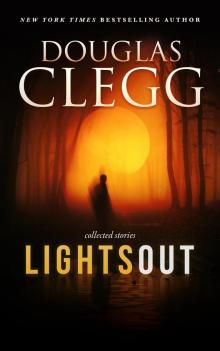 Lights Out
Lights Out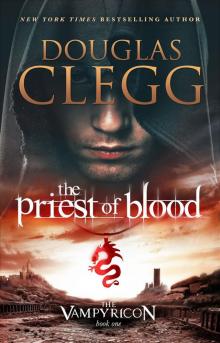 The Priest of Blood
The Priest of Blood Criminally Insane: The Series (Bad Karma, Red Angel, Night Cage Omnibus) (The Criminally Insane Series)
Criminally Insane: The Series (Bad Karma, Red Angel, Night Cage Omnibus) (The Criminally Insane Series)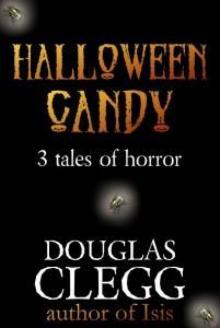 Halloween Candy
Halloween Candy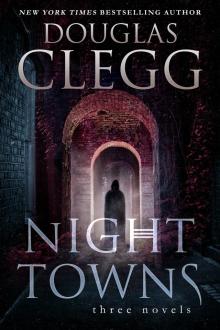 Nights Towns: Three Novels, a Box Set
Nights Towns: Three Novels, a Box Set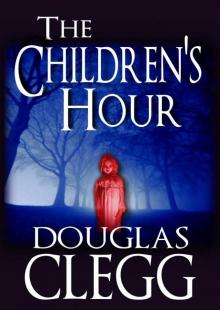 The Children's Hour - A Novel of Horror (Vampires, Supernatural Thriller)
The Children's Hour - A Novel of Horror (Vampires, Supernatural Thriller)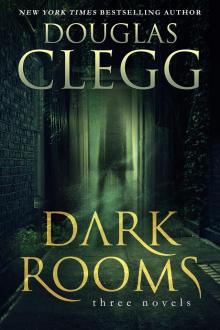 Dark Rooms: Three Novels
Dark Rooms: Three Novels![[Criminally Insane 01.0] Bad Karma Read online](http://i1.bookreadfree.com/i2/04/10/criminally_insane_01_0_bad_karma_preview.jpg) [Criminally Insane 01.0] Bad Karma
[Criminally Insane 01.0] Bad Karma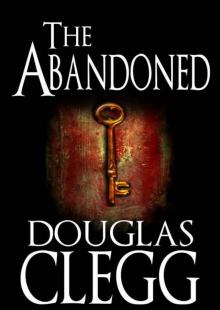 The Abandoned - A Horror Novel (Horror, Thriller, Supernatural) (The Harrow Haunting Series)
The Abandoned - A Horror Novel (Horror, Thriller, Supernatural) (The Harrow Haunting Series)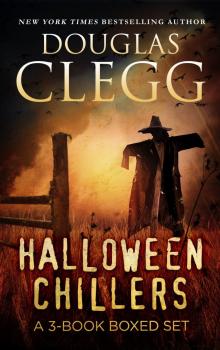 Halloween Chillers: A Box Set of Three Books of Horror & Suspense
Halloween Chillers: A Box Set of Three Books of Horror & Suspense